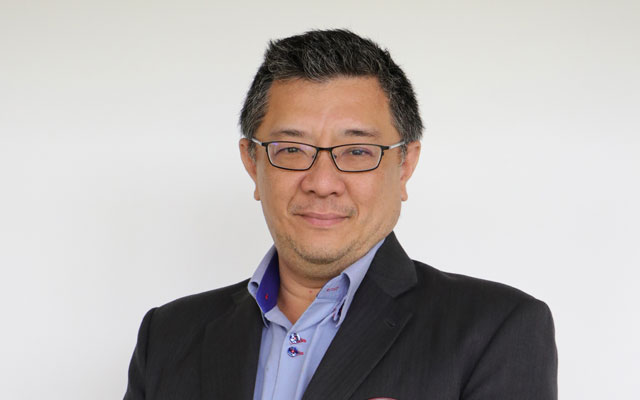S P Setia’s head of convention centres acknowledges the global business events industry is stuck in a rut, but he is determined to see the crisis through by improving and innovating.
What challenges are Malaysia’s meetings and exhibitions stakeholders facing?
The business events industry, as well as the travel and tourism industry, was one of the first sectors hit by the pandemic and will be the last to recover.
A key challenge is how businesses will be able to sustain through this period. It is a tough time for everybody in the travel and business events sector, but when we come out of it, we will be a stronger industry. I have no doubt about this.
Another challenge is restoring public confidence by assuring visitors that venues are complying and enforcing government standard operating procedures (SOPs), and that it is safe for them to attend live events.
There is a greater need today for industry stakeholders to collaborate and support each other to maximise all available resources.

How has Covid-19 impacted and changed the way S P Setia does business?
Both Setia City Convention Centre in Selangor, as well as Setia SPICE Convention Centre in Penang, have been deeply impacted by the pandemic.
Since the government allowed the resumption of business events on July 1, we are hitting around 25 to 30 per cent of our original targets. However, organisers of big events have either postponed their events to next year, or they have changed the format to a virtual event.
Due to reduced business activity, we have also taken a hard look at our venue operations in Penang and Selangor, and cut down on unnecessary expenditures to lower our operating costs.
We are in the midst of reinventing the way we do things according to the current needs of our clients. We know one of the things they want are reassurances that safety and security protocols set by the National Security Council are being followed and this includes health checks and physical distancing. Hence, we have provided reassurance by publishing a checklist on our website to which we abide to.
We have also used this downtime to create innovative meetings and conference packages that are suited for the current market conditions.
For instance, we developed a hybrid annual general meeting package that provides a live feed, as this can accommodate shareholders who are participating off-site. We have also launched the Grab and Go Conference package, which offers packed meals at very attractive rates to meet the demand of budget-conscious organisers.
How is the company managing its human resources during this downtime?
We are facing low demand for our venues, yet we have to keep our staff engaged with work and their morale high. We have deployed about 30 per cent of our idle manpower to other business units within the S P Setia Group that are still doing well, so they can contribute their talents effectively to the Group.
How are event requirements different from previous ones?
We hosted a lot of big events in the past. It is different now, with events having 250 people or less.
Organisers are unaware of the latest changes in the SOPs set by the National Security Council, for instance, group sizes are no longer limited to a maximum of 250 people per event. Bigger groups are allowed, provided venues are able to cater to the numbers with social distancing in place. Thus, we are constantly educating and updating organisers on the latest government SOPs.
With new normal parameters in place such as physical distancing, events not exceeding four hours and packed meals instead of buffet lunches and tea breaks, we are in constant engagement with event organisers to find out their event objectives and how we can help them meet these objectives within the new parameters.
What is your projection for recovery?
We expect the domestic market to slowly recover by the end of 2020 and we hope regional markets will return by mid-2021.
The Malaysian government is holding talks with foreign governments in the region to create travel bubbles. I think it will take at least six months after the commencement of such travel bubbles before we can see the resumption of regional events.
There has been much talk about hybrid events and their longevity. What are your views?
I think it is here to stay. It will not die completely after a vaccine for Covid-19 is found. Instead, it will complement live events but the percentage of hybrid to live participation will vary depending on event profiles.
For an organiser, having a live event is the best option. It also allows delegates to meet face-to-face and network. However, hybrid events have the advantage of attracting participation from speakers and attendees who may not be able to attend the event in person. There are also ways for organisers to generate revenue streams from hybrid events.
We are certain that hybrid events are not a short-term fad and we are looking at increasing bandwidth in the near future at both our convention venues as high-speed Internet is required for a successful execution of hybrid events.





















